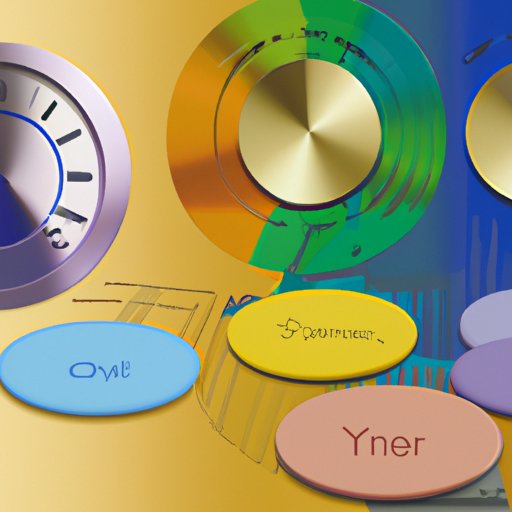Introduction
Certificates of deposit, commonly referred to as CDs, are a type of financial instrument that can be used by individuals, businesses, and other organizations to save and invest money. CDs are typically issued by banks and credit unions, and offer a fixed rate of return over a set period of time. Investing in CDs can provide several benefits, including a guaranteed return on your investment, safety from market fluctuations, and potentially higher yields than traditional savings accounts.
Exploring the Basics of CDs in Finance
When it comes to understanding CDs in finance, there are a few key points to consider. First, CDs are considered a low-risk investment option, since they are federally insured up to $250,000 per depositor. This means that if the issuing bank or credit union fails, you will still receive your principal investment plus any accrued interest. Additionally, CDs generally offer higher interest rates than most savings accounts, so they can be a great way to grow your money.
In terms of how CDs work, they are usually issued with a specific term, such as one year, three years, five years, or even longer. During this term, you will receive a fixed rate of return on your investment, which is determined at the time of purchase. Most CDs also come with early withdrawal penalties, meaning if you decide to cash out your CD before the term ends, you may have to pay a fee.
When it comes to investing in CDs, there are a few different types to choose from. Traditional CDs are the most common, and are issued with a fixed rate of return for a set period of time. There are also jumbo CDs, which require larger deposits and offer higher interest rates; no-penalty CDs, which allow you to withdraw funds without penalty during the first six months; and variable-rate CDs, which offer fluctuating interest rates based on market conditions.
Finally, there are a few strategies you can use when investing in CDs. For instance, laddering is a popular strategy that involves buying multiple CDs with different maturity dates. This allows you to take advantage of increasing interest rates over time, while still having access to some of your money each year. Another strategy is called “bumping up,” which involves reinvesting your CD earnings into a higher-yielding CD when the term ends.

Choosing the Right CD for Your Investment Needs
When choosing the right CD for your investment needs, there are a few key factors to consider. First, you should think about your risk tolerance. While CDs are generally considered low-risk investments, they do come with some degree of risk, so it’s important to understand how much risk you’re comfortable taking on.
You should also consider your time horizon. CDs are typically issued with a specific term, so it’s important to make sure the term matches up with your financial goals. Additionally, you should consider the current interest rate environment, as this can affect the returns you’ll receive on your investment.
Finally, you should think about your financial goals. Are you looking for a safe place to store your money? Are you looking for a long-term investment? Are you trying to maximize your returns? Answering these questions can help you determine the best type of CD for your needs.
Conclusion
Investing in CDs can provide many benefits, including a guaranteed return on your investment, safety from market fluctuations, and potentially higher yields than traditional savings accounts. When choosing the right CD for your needs, it’s important to consider your risk tolerance, time horizon, and current interest rate environment. Additionally, you should think about your financial goals and how they align with the different types of CDs. With the right strategy and selection, CDs can be a great way to save and invest money.
(Note: Is this article not meeting your expectations? Do you have knowledge or insights to share? Unlock new opportunities and expand your reach by joining our authors team. Click Registration to join us and share your expertise with our readers.)
